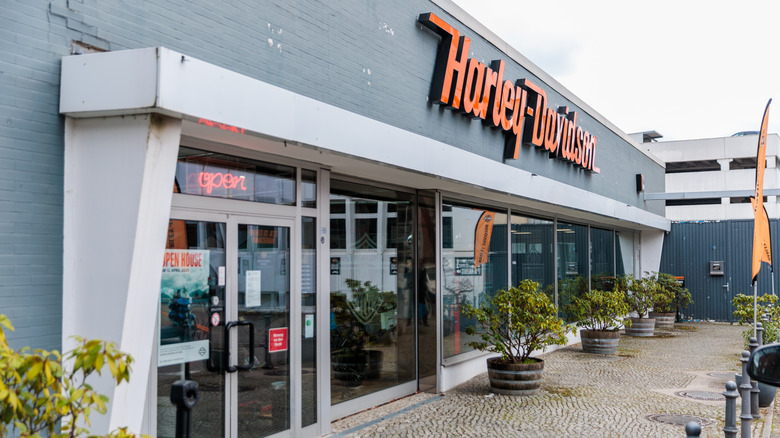Harley-Davidson is currently facing a significant downturn, with motorcycle revenue plummeting by 60% in Q4 2024. Unit sales decreased by 53% compared to the same period in 2023. Over the entire year, global shipments dropped 17%, equating to about 148,862 bikes, which is roughly 11,600 fewer than the previous year.
Advertisement
In North America, Harley’s largest market, sales fell 13% in Q4 alone. The first quarter of 2025 continued this trend, with global motorcycle sales down another 21%, including a 24% decline in the U.S. The company’s outlook for 2025 has been retracted, with management stating it cannot issue forecasts owing to “uncertain macroeconomic conditions and tariffs.” Meanwhile, competitors like Triumph, BMW, and Honda are thriving.
Even Harley’s electric sub-brand, LiveWire—despite showcasing impressive features—is struggling, having sold only 33 electric motorcycles in Q1 2025. Revenue dropped 42% year-over-year, with an operating loss of $20 million that quarter, although it was less severe than previous losses.
While Harley-Davidson is not alone in grappling with industry challenges, its significant declines, especially relative to rivals, indicate deeper issues within the company.
Advertisement
Internal chaos, boardroom disputes, and CEO issues exacerbate the situation
If Harley-Davidson’s sales figures weren’t already alarming, the internal dynamics of the company are chaotic as well. CEO Jochen Zeitz has announced plans to step down, but H Partners, Harley’s second-largest shareholder, demands immediate action. The firm owns 9% of the shares and is pushing for the ousting of three long-standing board members.
Advertisement
This tension escalated following the abrupt resignation of Jared Dourdeville, the H Partners representative on Harley’s board, who cited lack of transparency, leadership failures, and what he called “cultural depletion” within the company. This includes growing strain with dealers and consequences from removing DEI hiring quotas.
Leadership at Harley has struggled to align investor expectations with actual performance. The “Hardwire” strategy (developed by Zeitz) focused on premium models, limited production runs, and cost reductions, but has resulted in dwindling market share and increasing discontent among Harley’s loyal customer base.
Dealers are also venting frustrations, especially after the company introduced an online used bike marketplace that sidestepped them, combined with unfulfilled promises of support during the downturn.
Advertisement
At the same time, Harley attempts to highlight minor successes, such as a 5% increase in Touring segment market share, to counterbalance a crippling 47% revenue drop in Q4. However, investors remain skeptical, as the company’s stock has plummeted nearly 50% from its peak in 2023.
High prices, tariffs, and a shrinking customer base heighten the crisis
Harley-Davidson is up against a host of external pressures that would challenge any brand. Coupled with its internal struggles, these challenges have become existential threats. For instance, tariffs have returned, as President Trump proposed tariffs on imports from China, Mexico, and Canada, which could hurt Harley severely. Although the company shifted some production to Thailand, they do not manufacture bikes in Mexico or Canada, and rely on global sourcing for components. Tariff costs could potentially reach $175 million in 2025. Additionally, Harley already faces a steep 56% tax on motorcycles made in the U.S. when sold in Europe, which has contributed to a slump in its EU market share from 5% to just 2%.
Advertisement
Furthermore, high interest rates persist, making motorcycles a luxury item. Data indicates that over half of current and prospective buyers are postponing purchases due to economic uncertainty. Consequently, sales remain low, leading Harley to cut shipments to allow dealers to manage backlogged inventory.
The pricing strategy has also backfired. Harley raised prices at a time when consumers were tightening their budgets, creating affordability issues. Their high-end models are out of reach for a younger generation of riders. Instead of introducing more affordable, smaller models, the company doubled down on expensive Touring and Trike segments, which dominated their 2025 lineup.
Advertisement
While this strategy may appear sound from a financial perspective (higher profit margins, lower production volumes), it has made Harley vulnerable. With fewer young riders joining the community and loyal customers aging out, the brand’s future hinges on its ability to adapt, which appears to be lacking at this moment.












